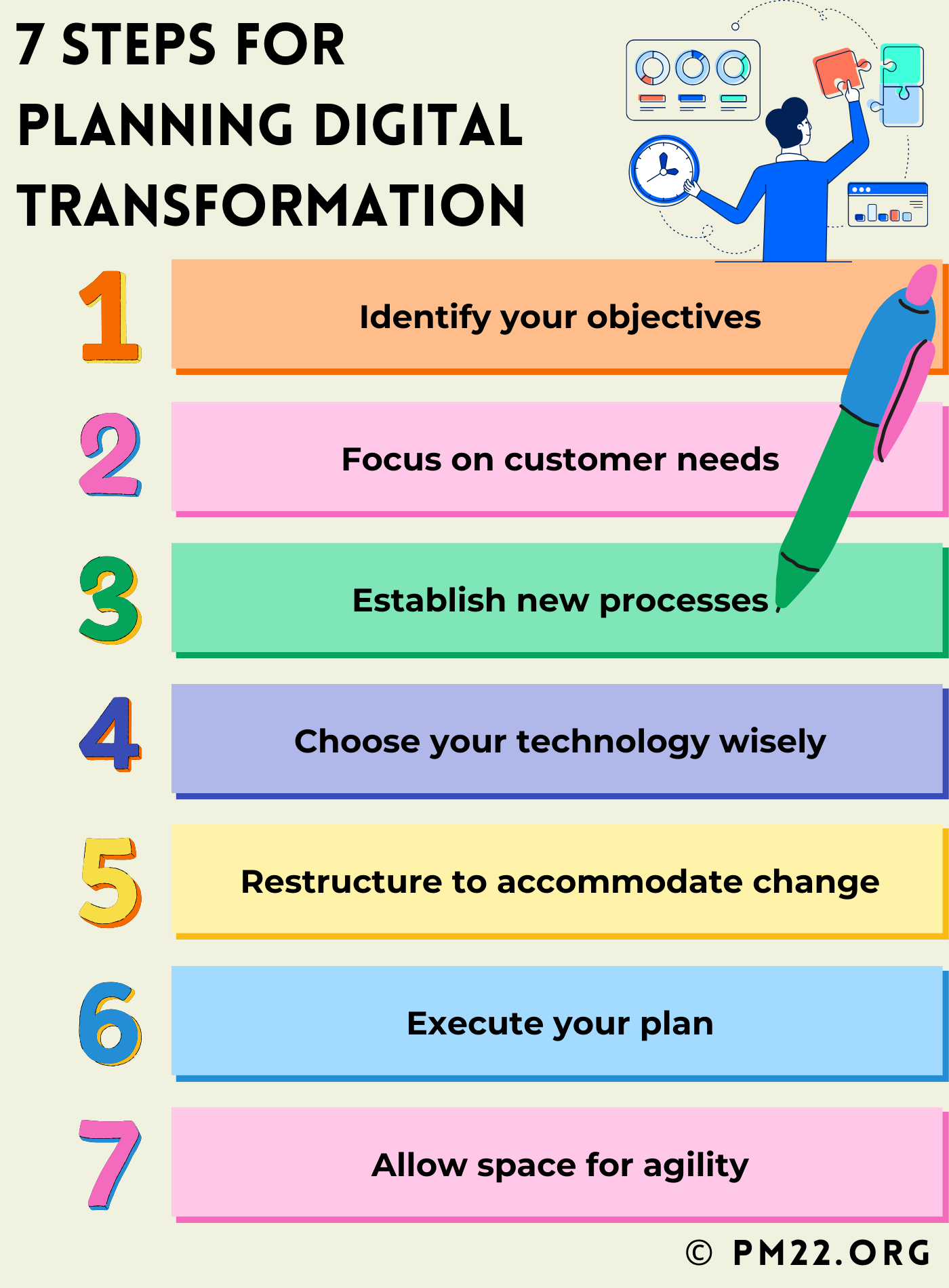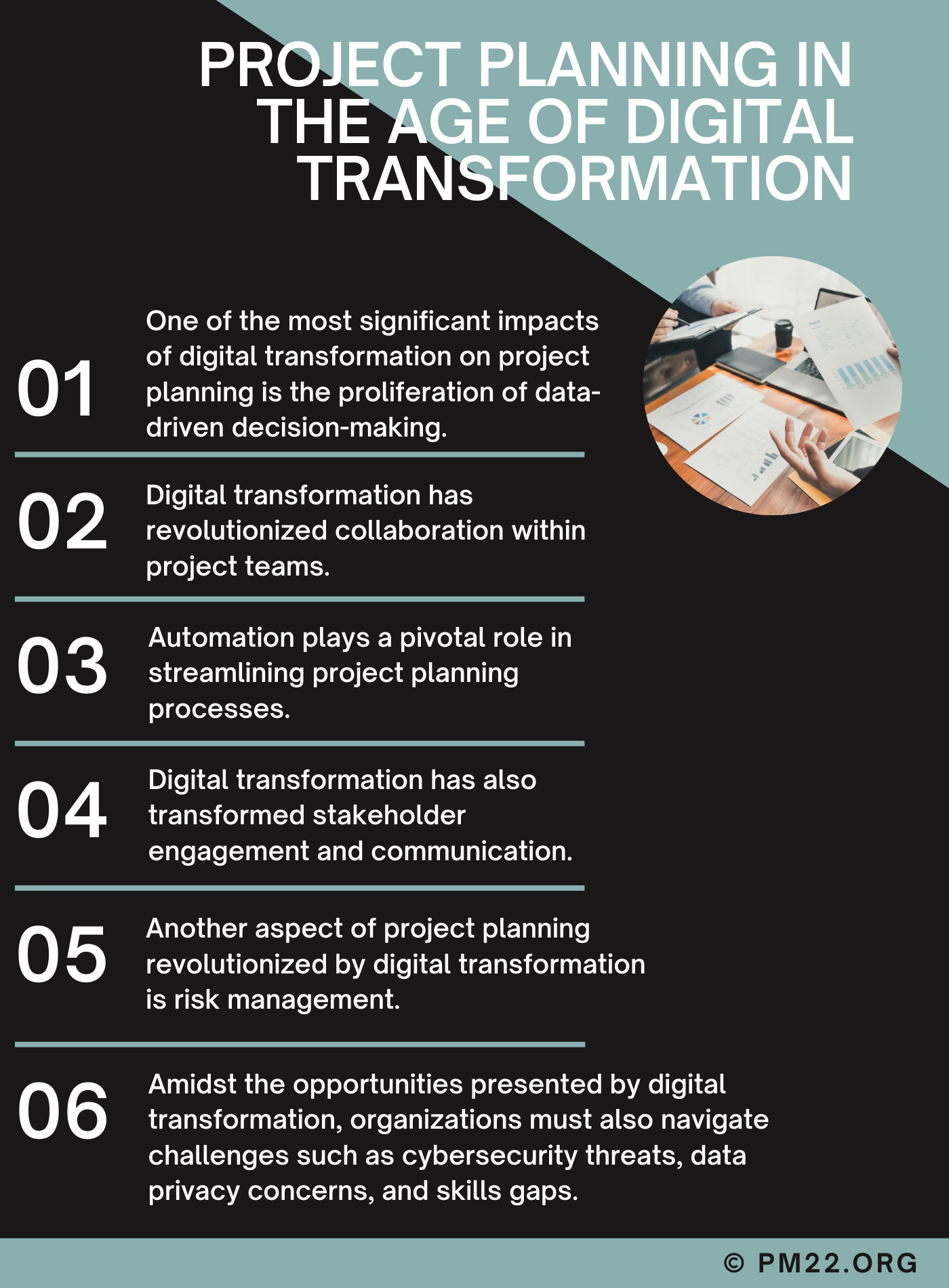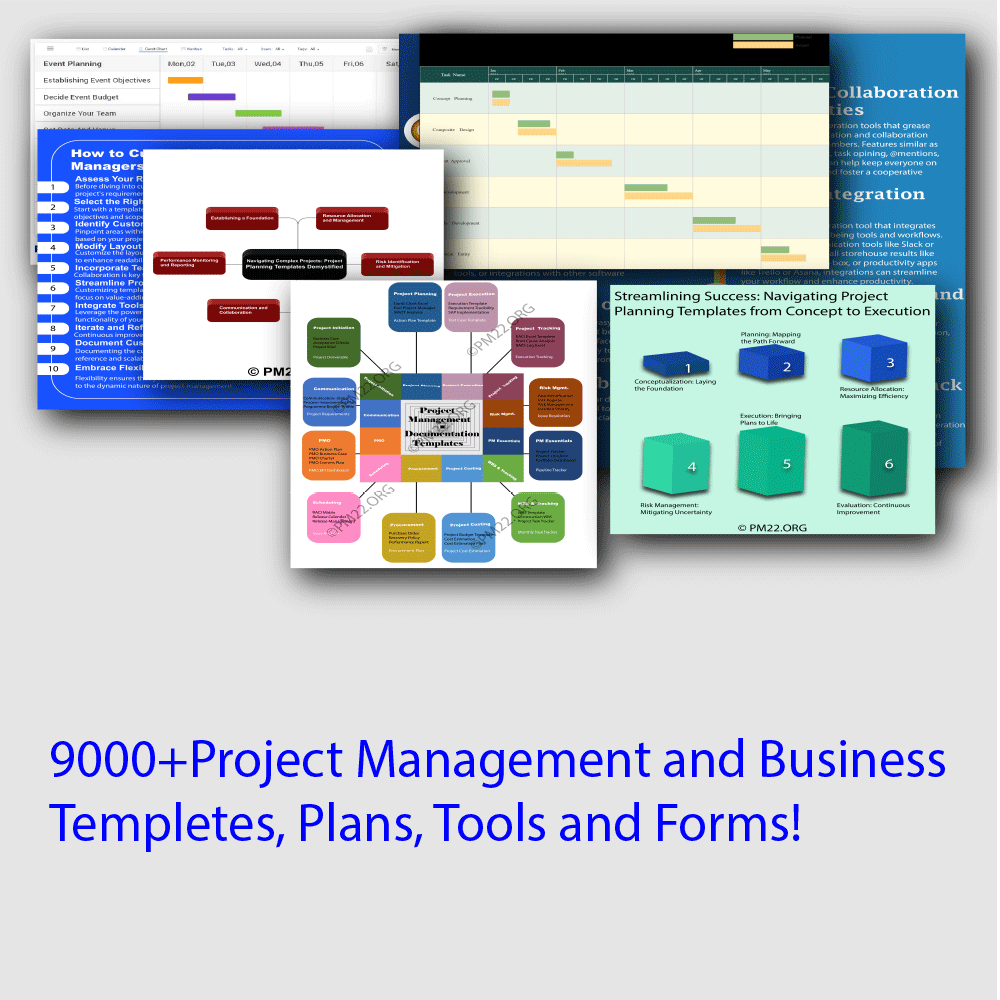 In today’s rapidly evolving business landscape, digital transformation is not merely a buzzword but a fundamental shift reshaping the way organizations operate. As industries embrace digitization to stay competitive, project planning has emerged as a critical cornerstone for success in this dynamic environment. The traditional approach to project management is undergoing a profound metamorphosis, propelled by technological advancements and the need for agility and innovation. Let’s delve into how project planning is adapting and thriving in the age of digital transformation.
In today’s rapidly evolving business landscape, digital transformation is not merely a buzzword but a fundamental shift reshaping the way organizations operate. As industries embrace digitization to stay competitive, project planning has emerged as a critical cornerstone for success in this dynamic environment. The traditional approach to project management is undergoing a profound metamorphosis, propelled by technological advancements and the need for agility and innovation. Let’s delve into how project planning is adapting and thriving in the age of digital transformation.
One of the most significant impacts of digital transformation on project planning is the proliferation of data-driven decision-making. With the advent of big data analytics, project managers now have access to vast amounts of real-time information, enabling them to make informed decisions promptly. Through data analytics tools, project teams can gain valuable insights into project performance, identify potential risks, and optimize resource allocation. This data-driven approach not only enhances project efficiency but also facilitates proactive problem-solving, driving better outcomes.
Moreover, digital transformation has revolutionized collaboration within project teams. Cloud-based project management platforms and collaboration tools have transcended geographical barriers, allowing dispersed teams to collaborate seamlessly in real-time. Virtual communication tools, such as video conferencing and instant messaging, facilitate constant interaction among team members, fostering a culture of transparency and accountability. As a result, project planning becomes more agile, adaptive, and responsive to changing circumstances, thereby accelerating project delivery.
CLICK HERE TO DOWNLOAD 300+ PROJECT MANAGEMENT TEMPLATES & DOCUMENTS IN EXCEL
Furthermore, automation plays a pivotal role in streamlining project planning processes. Artificial intelligence (AI) and machine learning algorithms automate routine tasks, such as scheduling, resource allocation, and risk assessment, freeing up valuable time for project managers to focus on strategic decision-making. By harnessing automation, project teams can optimize workflows, minimize errors, and enhance productivity, leading to more efficient project execution.
In addition to internal processes, digital transformation has also transformed stakeholder engagement and communication. Social media platforms, online forums, and digital feedback mechanisms provide avenues for stakeholders to voice their opinions and contribute to the project discourse actively. Project managers can leverage these digital channels to solicit feedback, address concerns, and foster stakeholder buy-in throughout the project lifecycle. By fostering open communication and collaboration, organizations can build stronger relationships with stakeholders, driving project success and customer satisfaction.
Another aspect of project planning revolutionized by digital transformation is risk management. Advanced risk assessment tools and predictive analytics algorithms enable project managers to anticipate and mitigate potential risks before they escalate into issues. By leveraging historical data and predictive modeling, organizations can identify emerging risks, assess their potential impact, and devise proactive risk mitigation strategies. This proactive approach to risk management enhances project resilience and minimizes disruptions, ensuring smoother project execution.
CLICK HERE TO DOWNLOAD 300+ PROJECT MANAGEMENT TEMPLATES & DOCUMENTS IN EXCEL
However, amidst the opportunities presented by digital transformation, organizations must also navigate challenges such as cybersecurity threats, data privacy concerns, and skills gaps. As organizations adopt digital technologies, they must prioritize cybersecurity measures to safeguard sensitive project data and mitigate cyber risks. Additionally, addressing the skills gap is imperative to ensure that project teams possess the necessary digital literacy and technical expertise to leverage emerging technologies effectively.
In conclusion, project planning in the age of digital transformation is characterized by data-driven decision-making, enhanced collaboration, automation, and proactive risk management. By harnessing the power of digital technologies, organizations can drive innovation, optimize project performance, and achieve competitive advantage in today’s digital economy. However, to realize the full potential of digital transformation, organizations must address challenges and embrace a culture of continuous learning and adaptation. In this era of rapid change, agile and adaptive project planning practices are key to navigating the complexities of the digital landscape and driving successful project outcomes.
